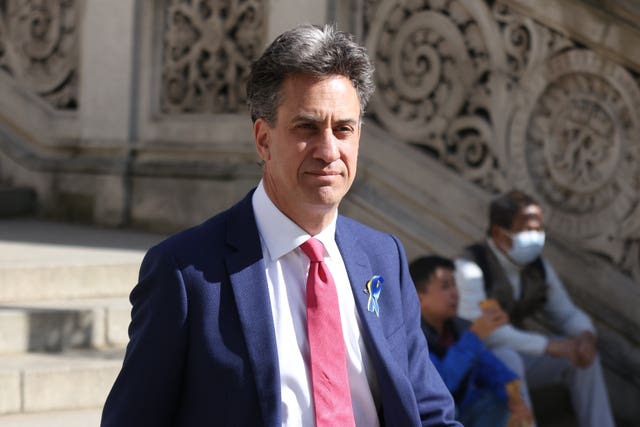Government refuses to commit to blocking Rosebank oil and gas field
The largest field in the North Sea area could produce more than 450 million barrels of oil between now and 2051 if the project gets the go-ahead.

The Government has refused to commit to stopping the development of the Rosebank oil and gas field north of the Shetland Islands.
It is the largest such field in the North Sea area, capable of producing 69,000 barrels of oil and 44 million cubic feet of gas per day, Equinor, which has operating rights, said.
When asked by Labour’s Richard Burgon whether the Conservatives would use their powers to halt development, climate change minister Graham Stuart said fossil fuels will still be required for decades to come and that it is better to produce gas on the UK Continental Shelf than import it from other countries.
He said: “The honourable gentleman is saying to his constituents, let’s pay billions to foreign, sometimes hostile states, rather than producing our own.
“It’s economic madness. The gas we bring in on tankers has two and a half times the emissions of our domestically produced gas.
“On what planet would any rational and reasonable constituency MP want to propose that as a proposal, unless they have some strange affinity with somewhere like Russia?”
Because of allowances in the windfall tax which mean fossil fuel companies can offset their tax contributions if they invest in new oil and gas projects, Equinor would pay only 10% of the development costs.
Government support would amount to £3.75 billion if Rosebank is approved, while Equinor would pay only £350 million.
Scientists have warned that approving Rosebank would make it much more challenging to limit the global average temperature to 1.5C above pre-industrial levels.
In a letter signed by 700 UK experts urging the Government to block all new oil and gas licences, they said “continued use of fossil fuels is a threat to us, our children and their children”.
Shadow climate change secretary Ed Miliband has said Labour would end new oil and gas licences, which the International Energy Agency has said must happen if the world is to reach net zero by 2050.

“Why is that a good use of taxpayers’ money? The UN Secretary-General (Antonio Guterres) has described this approach as moral madness.”
Addressing the House of Commons on Thursday, he called the Government’s Powering Up Britain energy security plan a “Groundhog Day of re-announcements”.
He said: “There may have been thousands of pages published this morning, but this is not the Green Day they promised but a Groundhog Day of reannouncements, reheated policy and no new investment.
“The documents are most notable for their glaring omissions: there is no removal of the onshore wind ban, which is costing families hundreds of pounds on bills a year. There is no new money for energy efficiency to insulate homes and cut bills, just a re-announcement of a feeble offer made last year.”
Mr Stuart said the UK must “diversify, decarbonise and domesticate” energy suppliers to secure cheap, clean power.
As part of the new plans, he said, the Government is launching Great British Nuclear to “put clean nuclear power at the heart of Britain’s energy security and spearhead a busy programme of new nuclear projects starting with a competitive down election this year to choose the best small modular reactor technologies”.
He also said the Government would be launching the floating offshore wind manufacturing investment scheme, a shortlist and funding for the first round of electrolytic hydrogen allocation and upgrades through the new Great British Insulation scheme.





